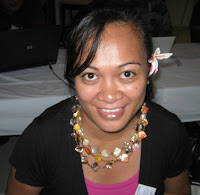 You are invited to view Ewan Cameron's photo album: Lessons for future action photo file 1 You are invited to view Ewan Cameron's photo album: Lessons for future action photo file 1
Message from Ewan Cameron: copy and past to the blogspot If you are having problems viewing this email, copy and paste the following into your browser: https://picasaweb.google.com/lh/sredir?uname=103706389943781169220&target=ALBUM&id=5615296828941729697&authkey=Gv1sRgCPTN4sTf3_3BYg&invite=CPzipXw&feat=email To share your photos or receive notification when your friends share photos, get your own free Picasa Web Albums account. |
You are invited to view Ewan Cameron's photo album: Lessons for future action photo file 2
If you are having problems viewing this email, copy and paste the following into your browser: https://picasaweb.google.com/lh/sredir?uname=103706389943781169220&target=ALBUM&id=5615298187799909681&authkey=Gv1sRgCIP3ro-e08fIigE&invite=CKXf1JEG&feat=email To share your photos or receive notification when your friends share photos, get your own free Picasa Web Albums account. | ||||
You are invited to view Ewan Cameron's photo album: Lessons for future action photo file 3
f you are having problems viewing this email, copy and paste the following into your browser: https://picasaweb.google.com/lh/sredir?uname=103706389943781169220&target=ALBUM&id=5615299483465695793&authkey=Gv1sRgCLb3pvrj3IfFEg&invite=CNjfkr0F&feat=email To share your photos or receive notification when your friends share photos, get your own free Picasa Web Albums account. |
You are invited to view Ewan Cameron's photo album: Lessons for future action photo file 4
If you are having problems viewing this email, copy and paste the following into your browser: https://picasaweb.google.com/lh/sredir?uname=103706389943781169220&target=ALBUM&id=5615299780932186529&authkey=Gv1sRgCKW295iEhc-T-AE&invite=CJjWjbcM&feat=email To share your photos or receive notification when your friends share photos, get your own free Picasa Web Albums account. |
You are invited to view Ewan Cameron's photo album: Lessons for future action photo file 5
If you are having problems viewing this email, copy and paste the following into your browser: https://picasaweb.google.com/lh/sredir?uname=103706389943781169220&target=ALBUM&id=5615300582816259425&authkey=Gv1sRgCKvJ88Lm2N_L-QE&invite=CJnOxtoM&feat=email To share your photos or receive notification when your friends share photos, get your own free Picasa Web Albums account. |
You are invited to view Ewan Cameron's photo album: Lessons for future action photo file 6
If you are having problems viewing this email, copy and paste the following into your browser: https://picasaweb.google.com/lh/sredir?uname=103706389943781169220&target=ALBUM&id=5615300851285071969&authkey=Gv1sRgCNSN2O3MmIj3qAE&invite=COyivhg&feat=email To share your photos or receive notification when your friends share photos, get your own free Picasa Web Albums account. |
You are invited to view Ewan Cameron's photo album: Lessons for future action photo file 7
If you are having problems viewing this email, copy and paste the following into your browser: https://picasaweb.google.com/lh/sredir?uname=103706389943781169220&target=ALBUM&id=5615301818118110001&authkey=Gv1sRgCOSojIqJqcq7vgE&invite=COb3mc8K&feat=email To share your photos or receive notification when your friends share photos, get your own free Picasa Web Albums account. |
You are invited to view Ewan Cameron's photo album: Lessons for future action photo file 8
If you are having problems viewing this email, copy and paste the following into your browser: https://picasaweb.google.com/lh/sredir?uname=103706389943781169220&target=ALBUM&id=5615302142370678545&authkey=Gv1sRgCJy9mZHS4JKrYw&invite=CMCauvkI&feat=email To share your photos or receive notification when your friends share photos, get your own free Picasa Web Albums account. |
You are invited to view Ewan Cameron's photo album: Lessons for future action photo file
If you are having problems viewing this email, copy and paste the following into your browser: https://picasaweb.google.com/lh/sredir?uname=103706389943781169220&target=ALBUM&id=5615300924828650385&authkey=Gv1sRgCIDRv5yEgI2-BA&invite=CPjFxlQ&feat=email To share your photos or receive notification when your friends share photos, get your own free Picasa Web Albums account. |
You are invited to view Ewan Cameron's photo album: Lessons for future action photo file
If you are having problems viewing this email, copy and paste the following into your browser: https://picasaweb.google.com/lh/sredir?uname=103706389943781169220&target=ALBUM&id=5615304509191383057&authkey=Gv1sRgCOCql4u9lP202wE&invite=CKnMu50M&feat=email To share your photos or receive notification when your friends share photos, get your own free Picasa Web Albums account. |
You are invited to view Ewan Cameron's photo album: Lessons for future action photo file 10
If you are having problems viewing this email, copy and paste the following into your browser: https://picasaweb.google.com/lh/sredir?uname=103706389943781169220&target=ALBUM&id=5615303950210063121&authkey=Gv1sRgCLGwk4Ojw5X2Yg&invite=CIyq_6gJ&feat=email To share your photos or receive notification when your friends share photos, get your own free Picasa Web Albums account. |
You are invited to view Ewan Cameron's photo album: Lessons for future action photo file_1
If you are having problems viewing this email, copy and paste the following into your browser: https://picasaweb.google.com/lh/sredir?uname=103706389943781169220&target=ALBUM&id=5615301244158391937&authkey=Gv1sRgCLvXubye5Lq8owE&invite=CNGHvYAI&feat=email To share your photos or receive notification when your friends share photos, get your own free Picasa Web Albums account. |





















